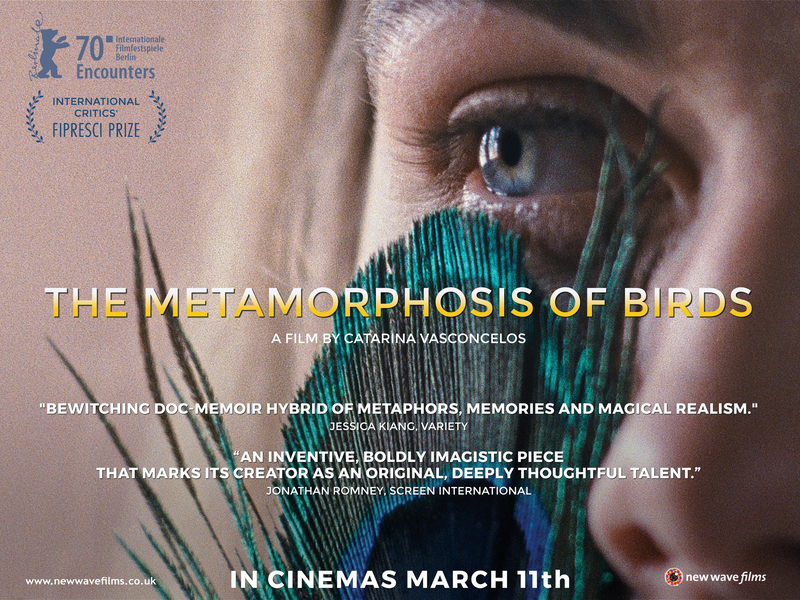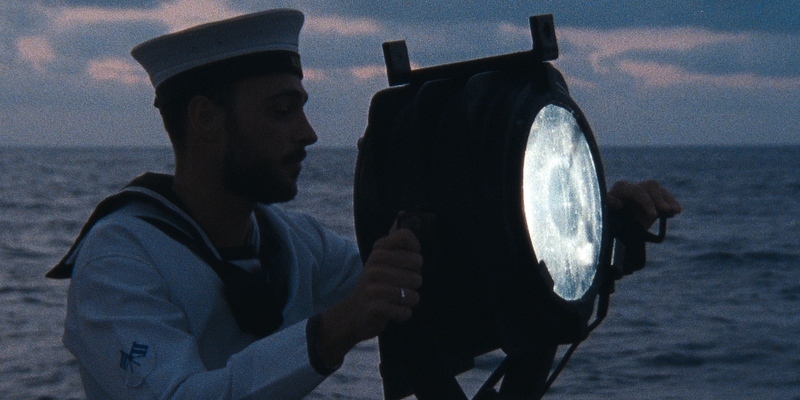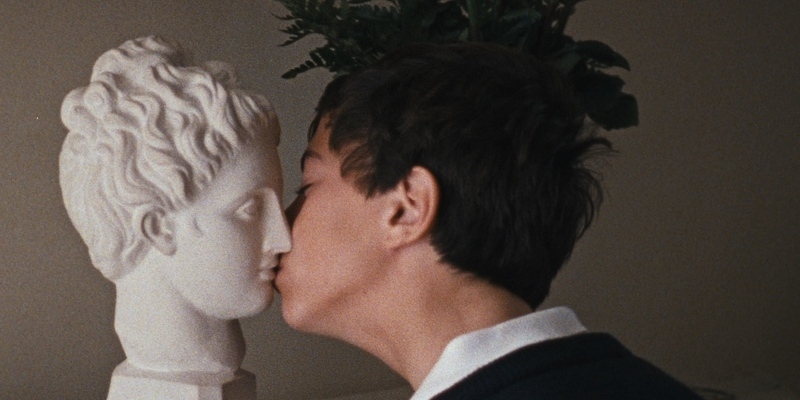
Review by
Benjamin Poole
Directed by: Catarina Vasconcelos
Starring: Manuel Rosa, João Móra, Ana Vasconcelos, Henrique Vasconcelos, Inês Melo
Campos, Catarina Vasconcelos

More than a mere film, Catarina Vasconcelos’
The Metamorphosis of Birds would be more accurately
described as a perfectly executed labour of love, a visual scrapbook of
memory, instances in time and abstract imagery of devastating beauty.
Nominally a biopic of Vasconcelos’ Lusitanic family, specifically her
grandfather Henrique and his wife, Triz, and the familial influence they
have upon their descendants, the film is a meditative kaleidoscope which
uses different textures, styles and witty camera trickery to express
saudade; an exclusively Portuguese expression which delineates ‘a
feeling of longing, melancholy, or nostalgia’, often for something or
somebody which is far away.

Henrique was a sailor, who was at sea for extended periods of time, and
the couple would communicate their love and longing via letters that
traversed the globe in the same way as birds in migration, eventually
finding their way to heart and home. These letters -sincere,
philosophical, devoted - form the basis of
The Metamorphosis of Birds’ narrative of thrilling visuals and uplifting emotion. Correspondingly,
the consuming sensations of Vasconcelos’ work require more than a mere
review: prepare for a hagiography.

Just as it is difficult to categorise or even describe the experience of
The Metamorphosis of Birds’ mercurial arrangement, it is also almost impossible to discuss the
sensation of watching it without lapsing wholly into superlatives. But
here goes... Using an intimate Academy ratio (mmmmmm), the film opens with
talking heads; intimate portrait shots of family members (including
Vasconcelos) which outlay the lineage and Henrique’s situation. The
various point of views blend into one another, traversing time and space:
what is one moment anticipated or feared, is in the next a bittersweet
memory. The central motif is time, and it’s inexorable passing. As
voiceovers compose the soundtrack, there is tight imagist poetry of
objects - a magnifying glass, trinkets upon shelves, a dead bird - which
are woven into the fabric of the film, inextricable from life experience.
The Metamorphosis of Birds’ transcendentalism even extends to the beautiful synchronicity of Triz’s
name, which is homophonic of trees, and which, along with the delicate
creatures that alight upon their branches, provide the abiding metaphors
of Vasconcelos’ thesis.

This is the sort of film where any sequence of a minute or so contains
more riveting beauty and ravishing poetry than most other pictures manage
in a full running time (this is not a slight on cinema in general, more a
rueful observation that The Metamorphosis of Birds is such
an exceptional movie). My notes, scribbled down during hasty pauses,
runneth over - at one point a character wishes for a heart ‘as tall as the
treetops so that, from afar, I can always follow the flight of my children
who are not afraid of the wind’ (try thinking of someone you love who is
not near enough to you, and then try to read that quote aloud without
getting a lump in your throat!). At another, a character ruminates in
grief that ‘we were a still life. We observed the world as if we were
inside a painting, while outside life insisted on carrying on’. Aside from
an encapsulation of grief, this statement perhaps also pertains to
Vasconcelos herself, whose art, as expansive and explorative as it is, is
yet by its nature limited as it cannot bring people back, and only
represent events, a bittersweet artifice which necessarily involves
subjective conjecture. In the final reel we discover that Henrique’s
letters were burned as part of his dying wishes.

The Metamorphosis of Birds is on
Netflix UK/ROI now.

